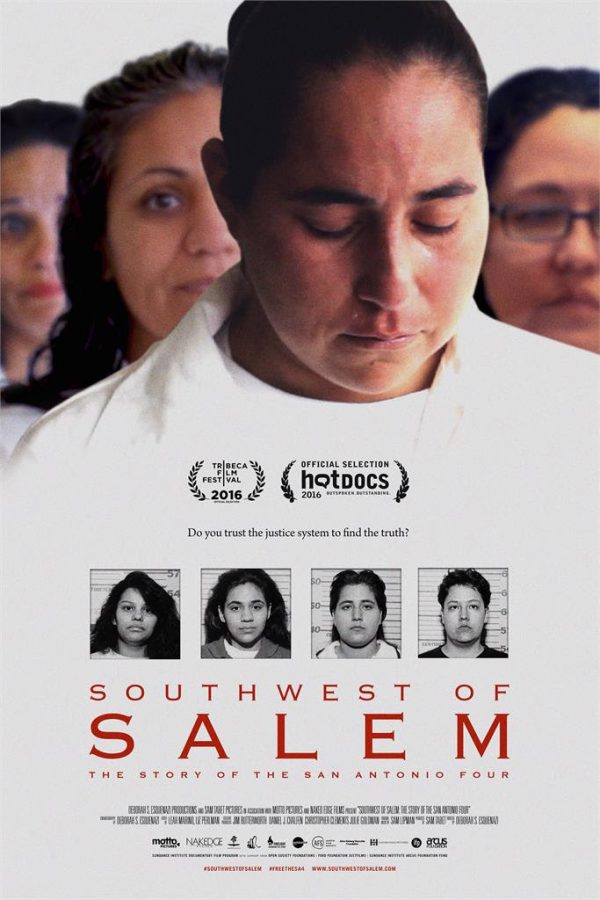‘Southwest of Salem’ Documents Prejudice in the Courtroom
Southwest of Salem is a provocative documentary addresses violence and the LGBTQ community in the mid-1990’s.
September 15, 2016
In a gripping new documentary, “Southwest of Salem” follows four Hispanic lesbians — Elizabeth Ramirez, Cassandra Rivera, Anna Vasquez and Kristie Mayhugh — who were accused in the mid-1990’s of the gang raping of two young girls in San Antonio, Texas. After fighting the conviction for nearly two decades, they are given a reason to hope when one of the two victims (who are both nieces of Ramirez) comes forward to set the record straight and retract her previous testimony. Director Deborah S. Esquenazi put the project together.
One of the best things about “Salem” is the escalating sense of frustration, both around the hidden prejudices that first inspired the women’s accusers to conspire against them and at the broken legal system that allowed them to be taken to trial and subsequently put in jail despite their innocence. Years later, the errors made in the case in terms of homophobic bias and unreliable child testimony seem obvious. The project is aptly named, framing their prosecution as a modern witch-hunt. Their fight for freedom is truly a story of humanity and its resilience, even in the face of devastating and unfair circumstances. It is an impressively documented journey from the night in question through the trial, prosecution and up to the court’s recent decision regarding their imprisonment in present day.
There are key moments where the protagonist’s emotional monologues feel somewhat unnatural and scripted. At times, characters conveniently reiterate the questions they are being asked before formulating their answers. Regardless of how genuine their emotions are, these moments create a crack in the film’s otherwise airtight righteousness. However, even these cheesier moments somehow work to Esquenazi’s advantage and heighten the drama in order to create more of a release when the four are finally released.
The most interesting aspect of the story is not the women’s struggle to exonerate themselves, but the idea that such a trial could ever succeed in the first place. Esquenazi does a meticulous search into their lives, and that benefits the four women in the end. The footage of their accuser speaking is especially outrageous as we see him repeatedly go back on his word and dig himself into a deeper and deeper hole.
The impressionable children in the story and their involvement brings to mind the sexual child abuse charges brought against Michael Jackson in 1993 and the resulting child abuse trial in 2005, with the major difference being that Jackson’s celebrity status ultimately allows him to easily overturn the charges while the San Antonio Four, being impoverished Latina women, are easily demonized by the prosecutor because of their sexual orientation. It is exciting to watch the court system develop and change its stance on previously unquestioned evidence as well as on the forced testimony of girls, fearful of their father (the man who likely was behind the rape). The film, though it felt forced at times, makes a strong argument as to why the women are innocent. “Southwest of Salem” is ultimately heartwarming.
Email Tye Musante at [email protected].
























































































































































